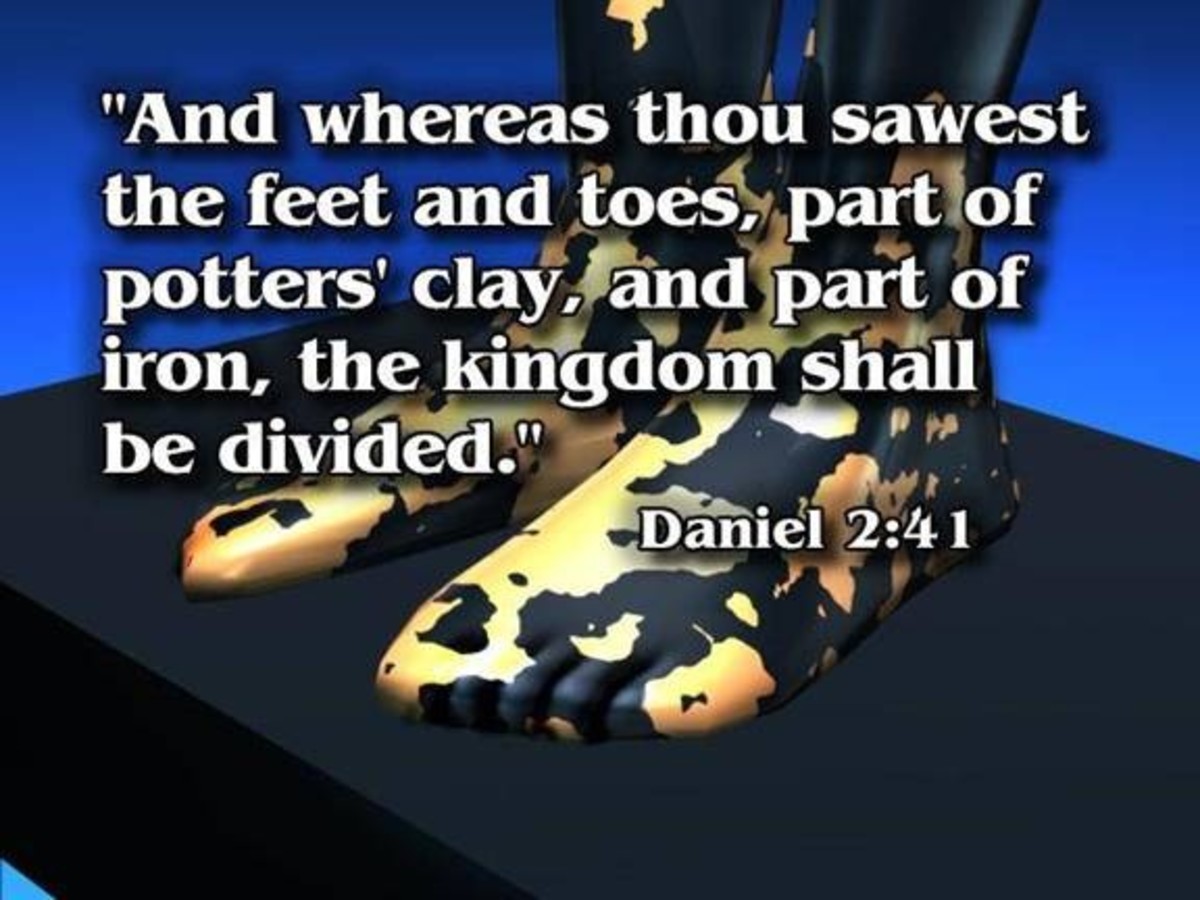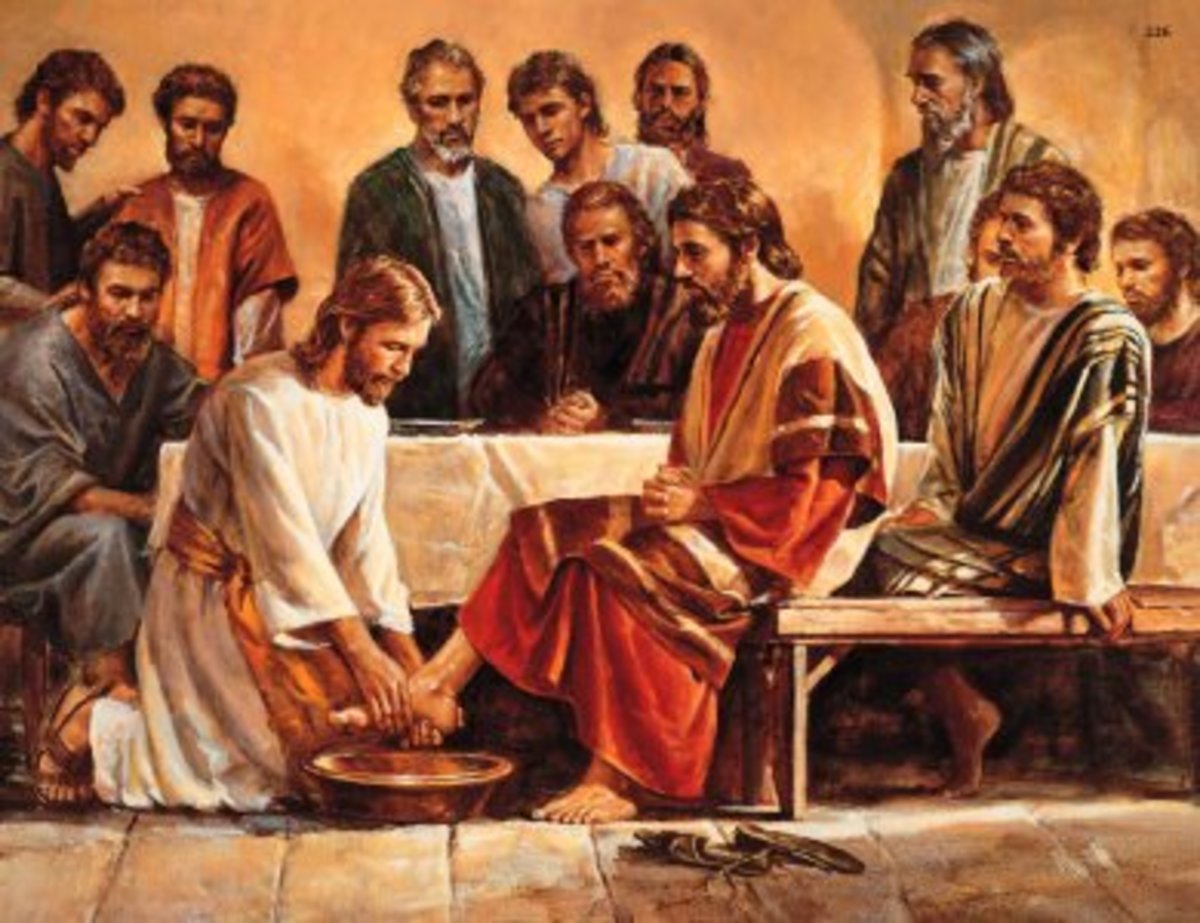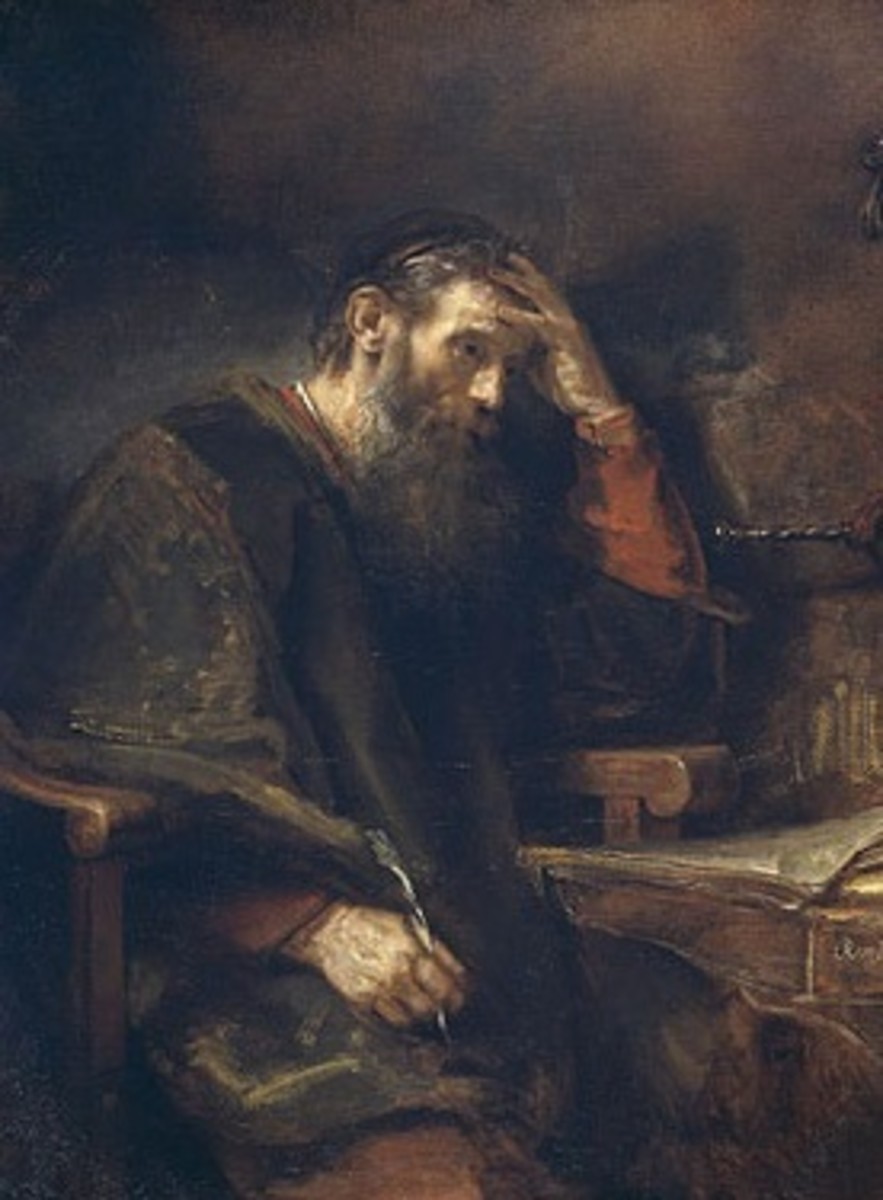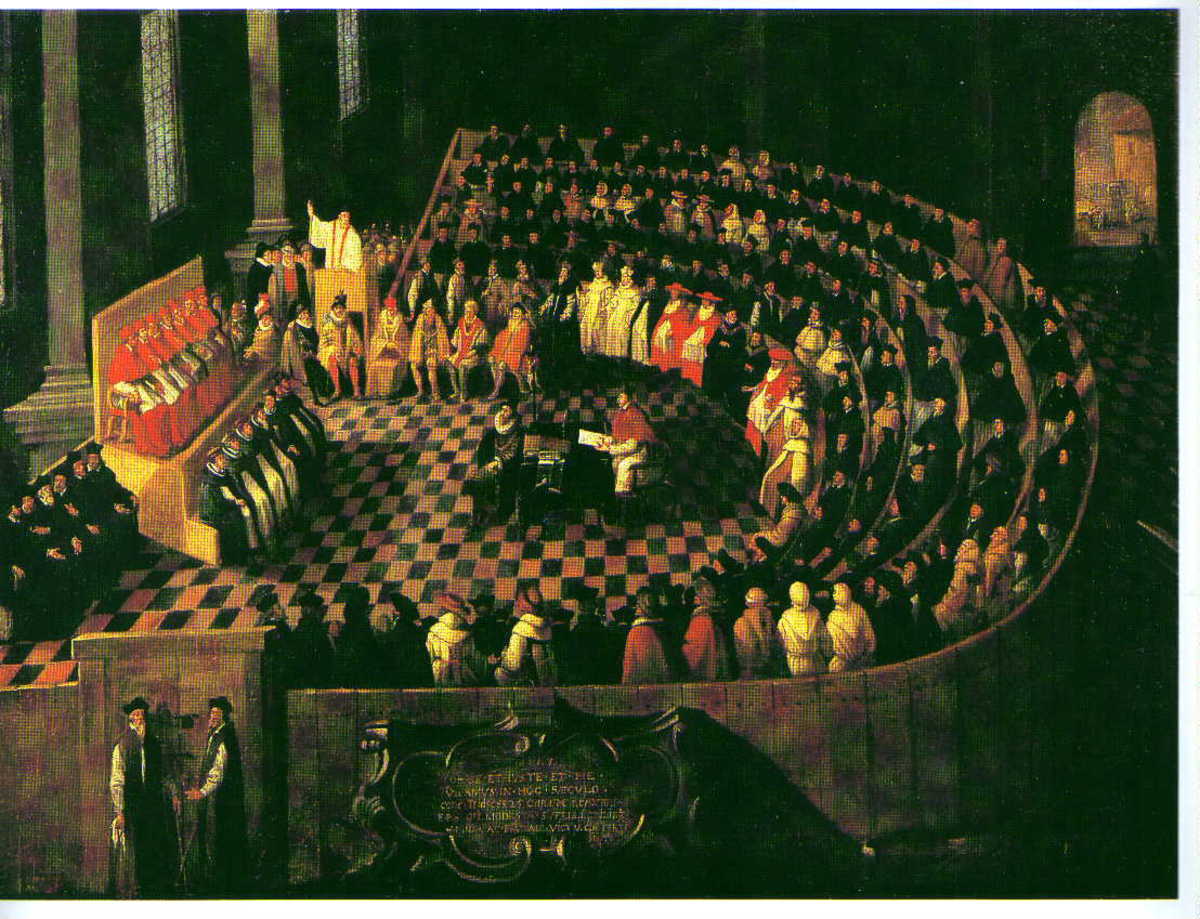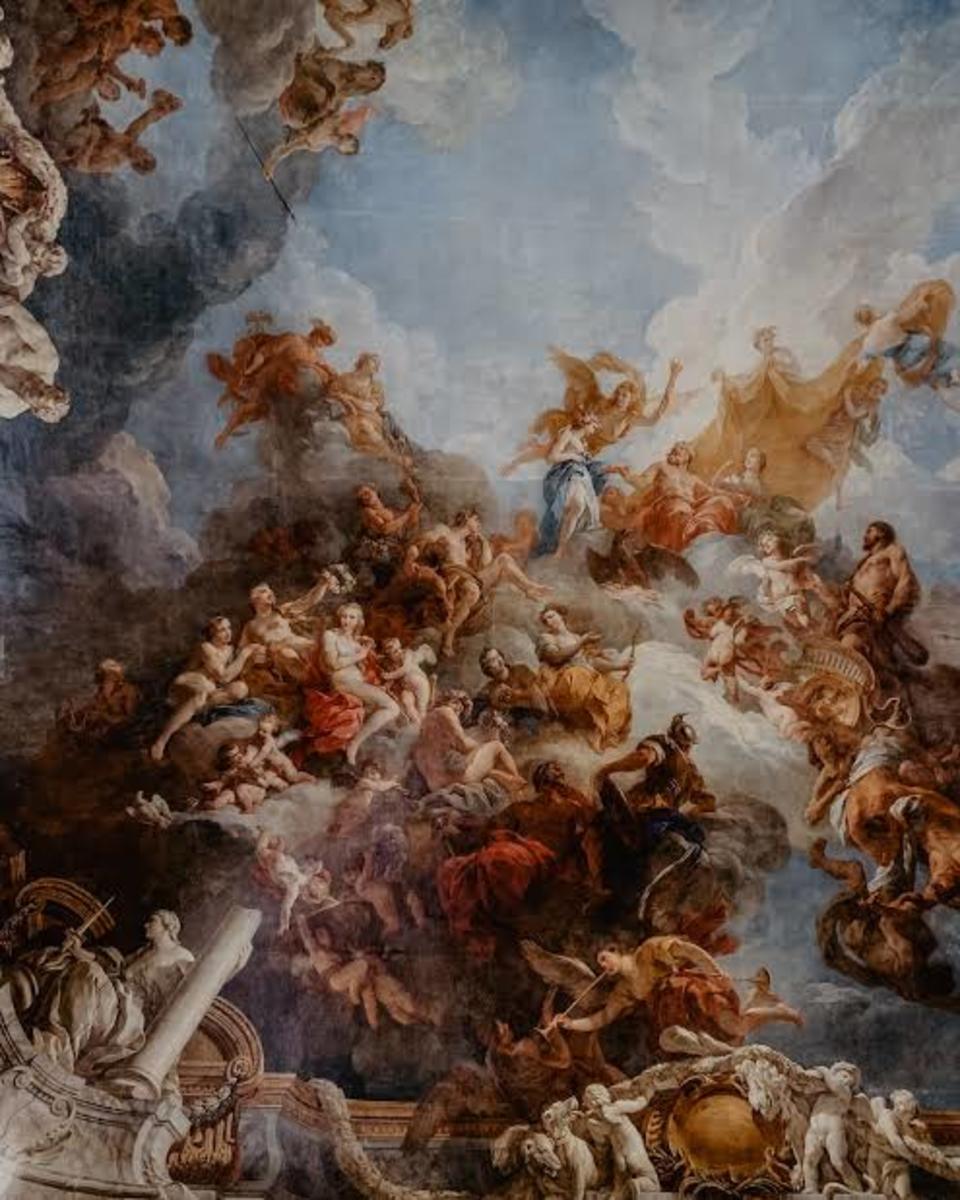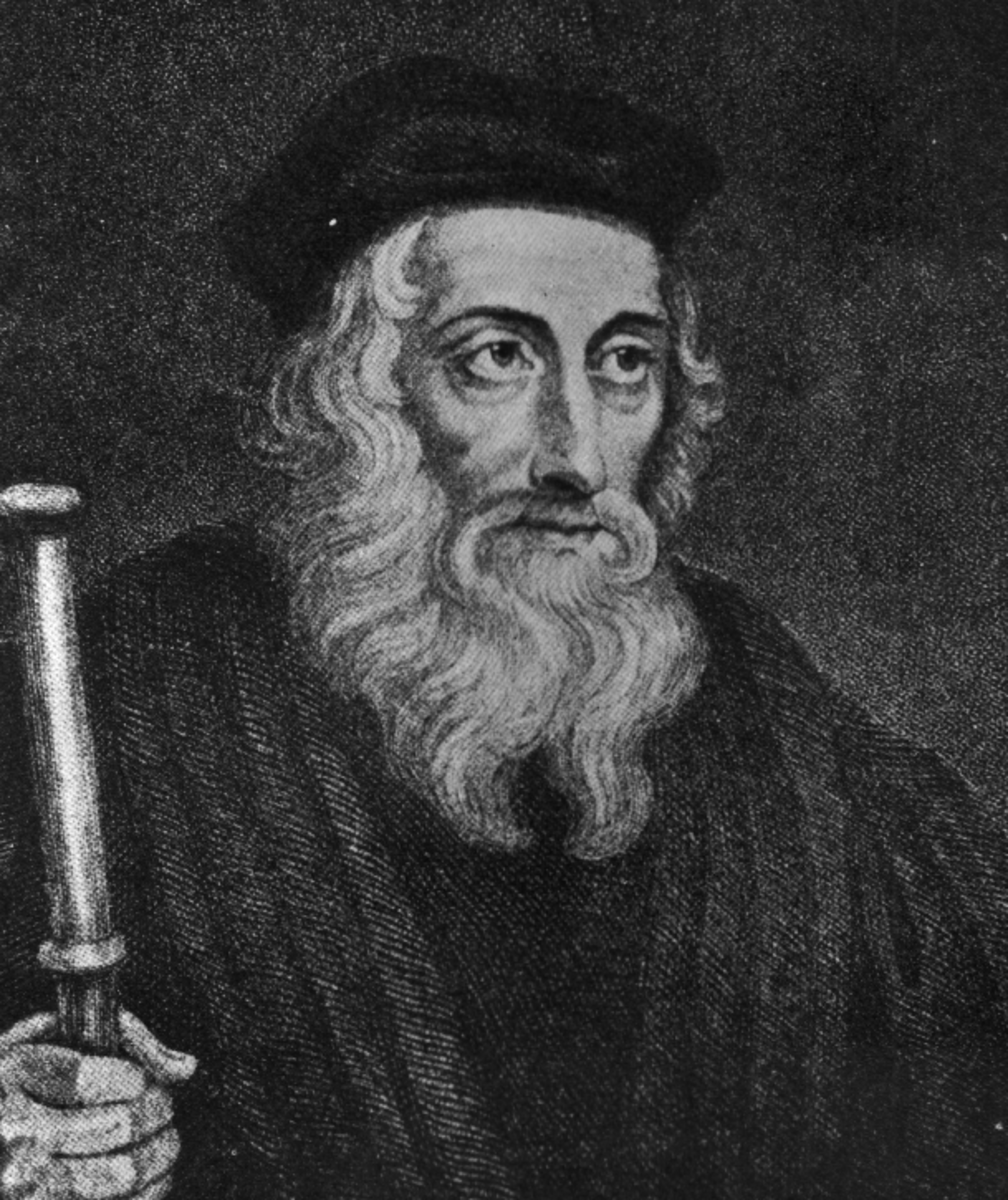Paul and Jesus
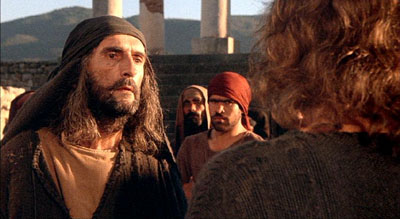
The Battle of Ideas
Like many of that era over many regions, Jesus sought to liberate Judea from the shackles of Roman imperialist domination. That in essence is the duty of a sovereign king – messiah, which even the likes of Paul acknowledges about Jesus in his myths. Jesus and his followers attempted to liberate Judea by peaceful means unless incited to defend themselves where possible against state violence. Others chose the path of violent attack. Rome, unlike other conquering nations, did not take the people away in chains, at least not in total except those destined for the arena or as naval rowers, but imposed a brutal order right where they lived, making them slaves in their own land. They were subject to heavy taxation and austerity, while the invaders lived in splendour along with their Judean lackeys. Moreover, the natural residents were subject to arbitrary conditions, where some were taken as slaves, others raped at the will by the invaders and everyone bullied at the whim of the Roman occupiers. Before Jesus was mature enough to be involved with political struggle, there was a man called Judas of Galilee (11) that promoted liberation in 6 AD, Jesus would have been around 12 years old at the time. No doubt, Jesus was influenced by the ideas at the time and the experience of life under Roman dictatorship. He may have even witnessed Judas of Galilee before Rome succeeded in having him killed. The period of Jesus' life between 12 to 30 is mysteriously quiet. At 12, he held his own while debating in the temple. By 30, he began his independent ministry, again in the temple. By that time, he had worked out and promoted his ideas in a singular task to liberate Judea and by implication, the rest of humanity. His ideas were founded on the principles and laws of Moses and the Old Testament prophets. The Old Testament prophets were liberators as seen in the writings of Jeremiah, Ezekiel and Isaiah. Moses himself, who is thought to have penned the Pentateuch, is regarded as a liberator and by some as the first union organizer. Anyone who fought for the independence of Judea recognized only God as the true king/
In the battle of ideas, we see the struggle of classes where there is a clear distinction of who is guilty of exploiting their victims. In a reversal, the victims are blamed and are made to internalize faults that originate from political-economic sources into themselves as personal shortcomings. This can be done if most people are kept ignorant of the true nature of the situation and made to believe an alternative story even though it is false. Thus for most gatherings, we see a concentration on personal sin and no consideration of the crimes of the organized state, religious and/or secular, against the people they exploit for the personal gain of the few in command. It is clear that Jesus among many others, fought against Roman imperialism and for self determination of Judea and its toiling masses. He was against collaboration at the top. Ultimately, he paid with his life for sedition against Rome. Paul's job was to crush the remnants of Jesus' following. His job was to force compliance to the state apparatus. Though he attempted to arrest or kidnap the followers, he was thwarted in Damascus and had to flee for his own life. This happened because Syria was ceded from Rome during Caesar Caligula's tenure, and had independence at the time. Early Christians sought refuge in Damascus from Roman persecution and this was important for the movement's early survival. Ultimately, one of Paul's means to do this was to infiltrate the Jesus movement and subvert it if it could not be crushed. At this time he got busy and likely had funding and support from Rome. He certainly had the support of the high priest of Jerusalem. The battle of ideas commenced. Rome continued to persecute the movement for hundreds of years, long after Paul died. Evidence is seen in Rome itself in the catacombs, mosaics and in the detailed descriptions of the era concerning Nero's persecution of all Christians, especially after a false flag operation. However, Paul, who developed and alternative gospel, managed to get this state serving form of Christianity into Rome and it eventually became the state religion under Constantine centuries later. In the early days of Roman Christianity, the movement survived literally underground under Rome as is evidenced by the catacombs under the city.
Paul's version of Christianity was to turn Jesus' ideas on their head and promote a Roman, state serving religion not dissimilar to the existing Roman religion, where the slave had to obey the master, even as he obeys Christ (1) and that all powers that existed, were permitted by God himself (2). The idea is a powerful one because in a sense, this is exactly so. But, what is also true is that God supports the rebels against tyranny. The sins of the powerful enforcing oppression upon their subjects were transferred to the victims who were being punished for the sins of the very oppression being forced upon them. The guilt was transferred to the victims of the real criminals. So we end up having a myth where the victim internalizes the pains the state inflicts upon him because of his own alleged guilt. Instead of seeking to overthrow a corrupt regime like Jesus, Judas, Peter or James worked to accomplish, they wait on Jesus, convinced by Paul, to bring justice while they sit and wait. Meanwhile, ever increasing corruption and cruelty continue with hardly a hiccough. The rulers and priests bear rule by their means and the people end up “loving it” (3). This was true then and it is still true and the victims of war criminals are called the terrorists. If Jesus were about his business today, he would likely face charges of being a terrorist himself. In the days of Rome, he was that very thing, threatening the peace and security of an occupying tyranny.
If it were not for Damascus, Christians may not have survived the Roman purges in the first century. Sanctuary meant Rome failed in its quest.
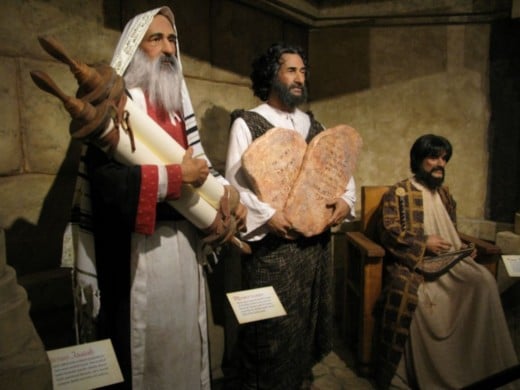
According to the very gospels that were screened by the Paul censoring process, Jesus came to fulfil the law and that law is the law of Moses. Moses himself was a liberator. Paul does not apparently disagree with the fulfilment of the law, but which law? Clearly, Jesus and those like him or his followers were guilty of the law of Rome and faced persecution, torture and death. Apparently, Jesus did not fulfil the law of Rome and paid the consequences. But: he did fulfil the law of Moses and Judaism, so there is a contradiction. Paul sought originally to fulfil the mandate of Rome and began his career by persecuting anyone or any group that would not toe the line. According to Hyam Maccoby (4), Paul had a “vision” or what can be said in contemporary terms, a flash of genius insight. Instead of doing the impossible task of wiping the Jesus movement off the map, he would infiltrate and change it from within, moulding it to fit in with Roman and Hellenistic religion and philosophy. Early Christians took refuge in Damascus as it was outside of Roman control and sovereign. Paul could not therefore do anything other than preach an alternative Christ and condemn the movement of perverting the gospel. The son of man, Jesus, became the son of God, a deity, via the intervention of Paul. Jesus did not proclaim a title any more than that of messiah, which is a person of royal descent and one that believed in a message; the law of Moses and the liberation during the Jubilee.
Further, Paul transforms the movement into a religion. Jesus had no idea of creating a new religion as the religion of Judaism was already sufficient. Nor did he advocate his followers to do anything beyond going two by twos to spread the message that he preached in innumerable sermons. Paul turned a movement that could have easily disappeared in the unfolding of history and ultimately laid the groundwork for the establishment of a state religion and a theocracy that would dominate the world for the better part of two millennia. Paul fused Jesus with the existing deities of Rome and Greece.
Anyone who studies comparative religion will tell you of many deities that preceded Jesus and whose lives and qualities are identical to Jesus (5). This is of course, about the deity Jesus and not the political-economic agitator to whom the name Jesus became attached. The human Jesus was sentenced to death for sedition against Rome. Paul took the ideas of the god Romulus, the Roman, Jesus like deity, and superimposed them on a leader of the radical Judea movement seeking to toss Rome out of the country. The stories of the New Testament, written well after the events were embellished with the details found elsewhere, and plenty of sermons added filled with wisdom and social justice issues. There are accounts that are older stories that came to light in 1945 and 1947, but kept virtually secret until the 1990s that tell a different story of the man Jesus (6, 7, 8). Therein we find different stories including marriage, family life, the crucifixion and other accounts not found in the New Testament as it is today.
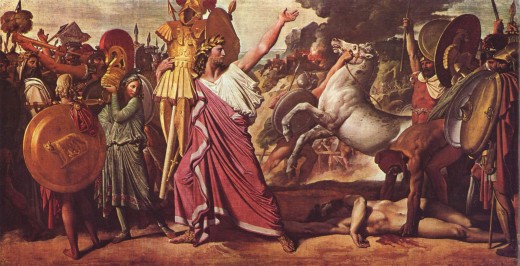
Paul took ideas from Rome and Judaism and fused them into a new religion. However, Roman authorities were slow to accept these new ideas and it took almost three centuries before the new religion gelled into what was to become the foundation of the Catholic church under Constantine (9). Through Paul, we have the deification of Jesus Christ, the Judea revolutionary, who then became the blood and body atonement for the sins of humanity. Within Judea itself, human sacrifice had been banned for a long time and animal sacrifices were used for sin atonement. Paul reintroduced human sacrifice and upped the ante to the concept of god sacrifice. Judean tradition could not accept this. Paul established the Eucharist where the bread and wine are mystically transfigured into the body and blood of Jesus Christ which believers are to eat and drink in a fashion compared to cannibalism and vampire activity in order to incorporate God physically into themselves. Words are placed in Jesus' mouth about this, but note; Jesus himself never wrote any transcripts, nor did the apostles, except for texts found in the Qumran caves and in Egypt. Indeed, the 82 followers of Jesus were told not to take purse nor script when they went about the country, spreading the news of liberation. The obvious reason politically is that no script meant no evidence that could be used by Rome against the agitator. The only script needed was the Torah, which existed in any synagogue. The existing transcripts were written well after the events portrayed therein. Can they really be seen as an accurate description of events several decades after the occurrence? Anyone who works in the reporting business or for that matter, police and security say that it is important to make a record of events as soon as possible after the occurrence to avoid memory lapses and/or confusion. In addition, lawyers who examine and cross-examine witnesses know that several witnesses to the same event, will give different accounts. So we are dealing with relative accounts here and not absolutes. Yet, Paul deals with absolutes and took control of the publication of accounts that in some parts come across as muddled. This later became a difficulty when the Bible was first becoming assembled. Over the centuries it changed again and again. Today, two main Bibles predominate; the Douay and the King James Version. The latter has the Apocrypha, the several books between the minor prophets of the OT and the NT removed therefrom. For most people, no account is given as to why these books were removed. However, in the contemporary era, a plethora of Bibles have emerged with differences between all of them, some fairly major and most seemingly insignificant, unless one belongs to a minority on the receiving end of condemnation. The real message has been predominately lost and a substitute is given, thus protecting the current oppressors and persecuting all of their victims. The social message is all but ignored and the focus is on sin and personal salvation by faith. Real needs are ignored and those who cry out for justice face the wrath of the Christians.
How would Jesus treat a Syrian today. We can look to the filtered story of the Samaritan woman at the well of Jacob (10). She sees Jesus at the well but with no means to drink. She offers to help and Jesus offers “spiritual water” in return. Normally, according to the story, Samaritans and Jews do not associate, but Jesus had no problem associating with others outside of the Jewish camp. Today, it is likely he would also associate with the poor people of Syria, wherein lies Damascus, who are hated by the Jews and are now under tremendous persecution with war, genocide and a massive humanitarian crisis. Damascus once offered refuge and sanctuary to the early followers of Jesus. Paul wanted to subdue a rebel group and bring them to heel of the Roman empire. Jesus and others like and alongside him, wanted to liberate all from the Roman iron heel. Rome won in the end and we have Christianity, born of Paul now dominating Christendom and helping the state to maintain rule by its means. But, the old battle rages on!
References
-
Colossians 3:21-23
-
Colossians 1:15-17
-
Jeremiah 5:30,31
-
http://listverse.com/2009/04/13/10-christ-like-figures-who-pre-date-jesus/
-
http://www.smithsonianmag.com/history/who-wrote-the-dead-sea-scrolls-11781900/
-
John 4:1-27
Though this did not Occur in Jesus' Time, it Does Indicate the Ferocity of Roman-Jewish Struggle
- Bar Kokhba revolt - Wikipedia, the free encyclopedia
The First Roman-Jewish war occurred closer to the time of Jesus, leading to the sacking of Jerusalem in 70 AD. - Bar Kokhba revolt - Wikipedia, the free encyclopedia
The Third Roman Jewish war resulted in heavy casualties. Two earlier wars proved a challenge to Rome and these wars may be what is behind the persecution of early Christians.

